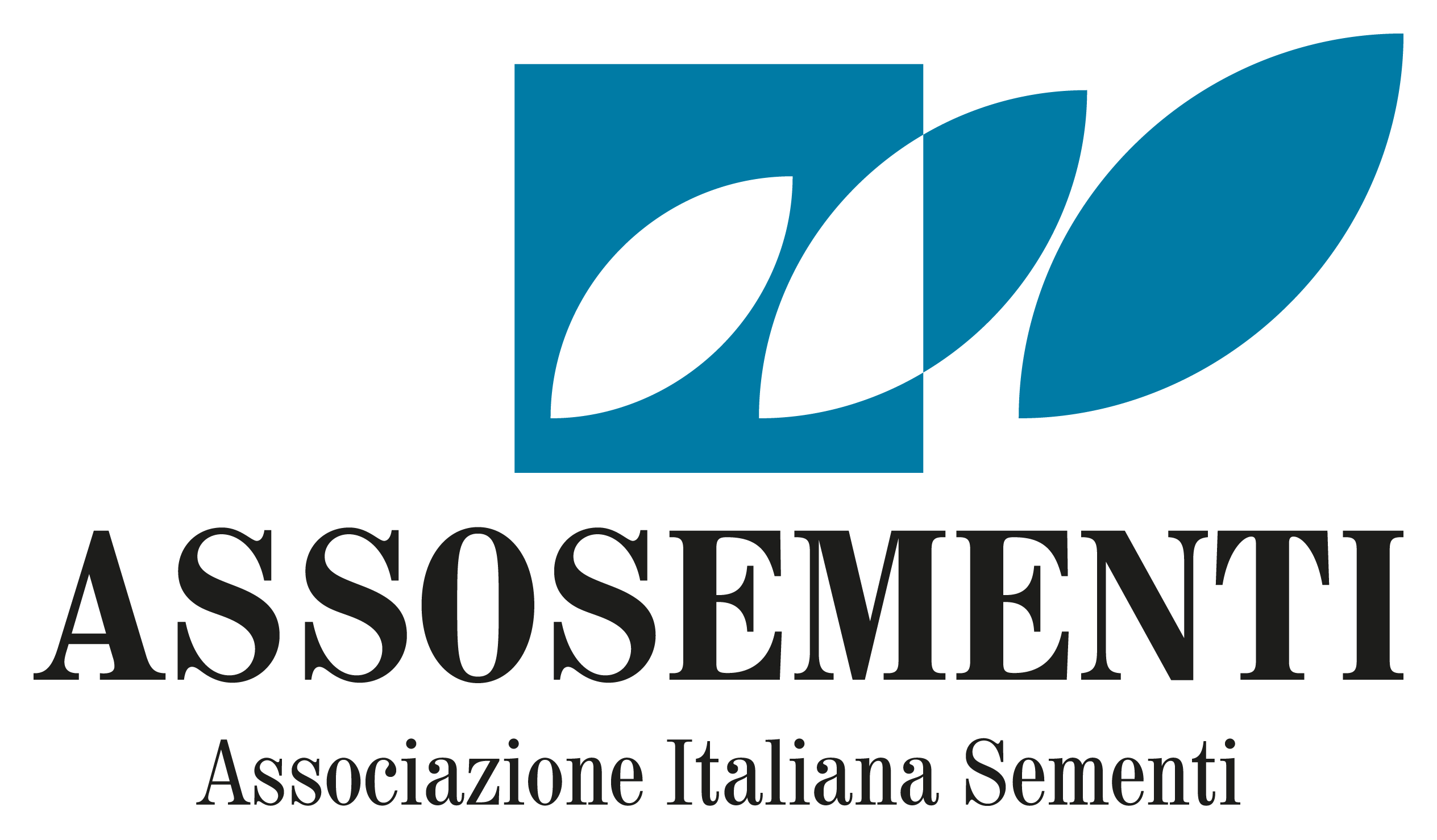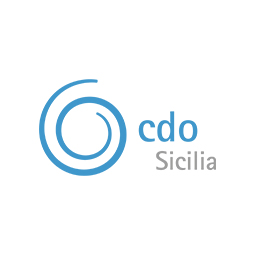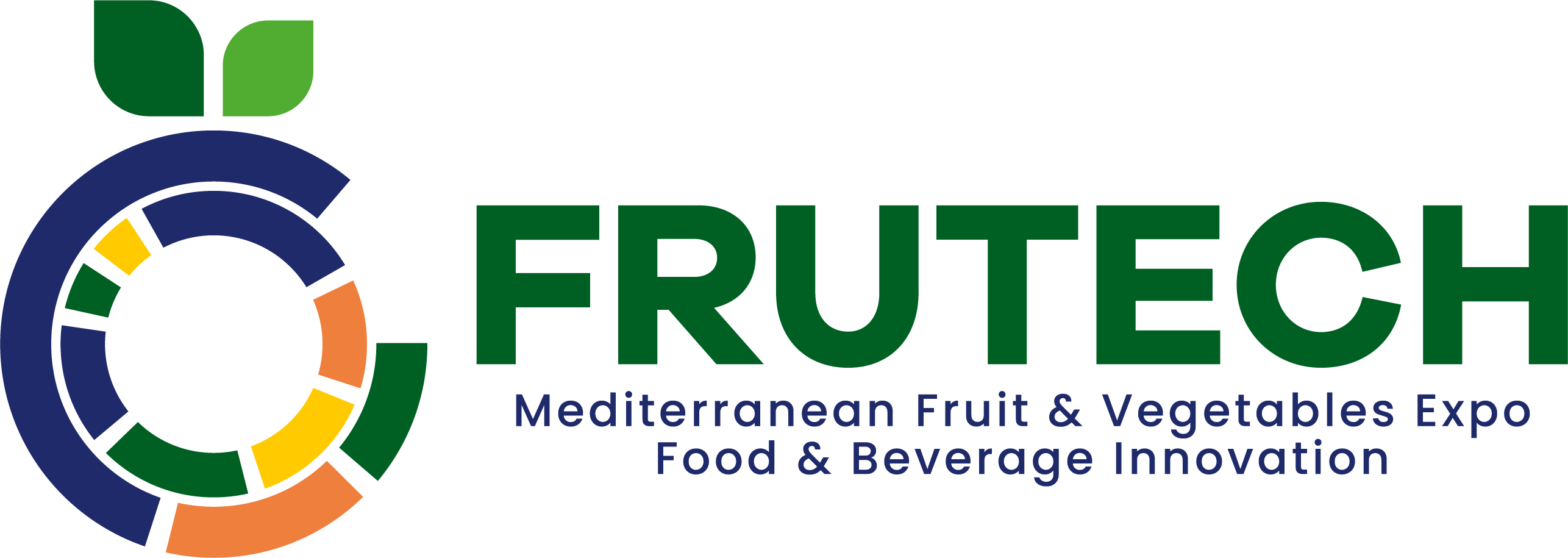Attend the meetings
Learn about all the training, exchange and participation opportunities planned for the three days of Expo
Program
Scientific Conferences
Archimedes Hall
Conference 1
November 28, 2024
2:00 p.m.
CAP and fruit and vegetable supply chain markets.
This meeting aims to explore the role of the Common Agricultural Policy
(CAP) in the evolution and support of fruit and vegetable supply chains, key sectors for
our country’s agriculture and economy. Through the contribution of experts from
the sector, the opportunities and constraints related to global markets and the
challenges related to sustainability, competitiveness and innovation will be explored. The event will
be an opportunity for a discussion on new growth strategies and how European
policies can foster the development of our supply chains also through suitable
protection tools.
Program
Introduces and coordinates: Angelo Frascarelli, University of Perugia 14:10 The CAP for the fruit and vegetable sector
Damiano Li Vecchi, Director General of International and Union policies
European Union, Masaf 14:30 Market, consumption and value chain of fruit and vegetable products
Mario Schiano, Ismea 14:50 Implementation of EU and national legislation on unfair trade practices.
The role of the ICQRF department
Felice Assenza, Head of Department of the Central Inspectorate for the protection of
quality and fraud repression of agri-food products, Masaf 15:10 What future for fruit and vegetable companies in the current geopolitical context?
Alessandro Scuderi, University of Catania 15:30 Speeches and conclusions
Archimedes Hall
Conference 2
November 28, 2024
4:00 p.m.
Technical means for horticulture: biostimulants and biocontrol
The role of biostimulants and biocontrol solutions is increasingly relevant for
improving the quality and yield of fruit and vegetable production while reducing the
environmental impact. During this event, new
technologies and sustainable practices that can support farmers in
crop management will be reviewed, with a focus on concrete industry experiences. Experts
in the field will discuss how these technical means can make a
contribution to sustainability in different supply chains.
Program
Introduces and coordinates: Agatino Russo, University of Catania 16:10 Biostimulants in horticulture: a supply chain approach
Antonio Ferrante, Scuola Superiore Sant’Anna of Pisa 16:30 Bacteria as biocontrol agents: role on the microbiome
Vittoria Catara, University of Catania 16:50 Application of biostimulants in viticulture and fruit growing.
Boris Basile, University of Naples Federico II 17:10 Innovative strategies for protection against adversity: natural chemicals
and biocontrol agents
Gianfranco Romanazzi, Polytechnic University of Marche 17:30 Biostimulants based on plant extracts and microorganisms in horticulture
Ferdinando Branca and Daniela Romano, University of Catania 17:50 Speeches and conclusions
Archimedes Hall
Conference 3
November 29, 2024
10 a.m.
Species for new fruit growing in the context of climate change
The effects of climate change are placing new constraints on
fruit production by affecting production cycles and, in the long run, the choice of species
that can be grown. This meeting aims to explore which varieties and species
fruit crops can best adapt to new climate scenarios, ensuring profitability
and sustainability. Experts in the field will discuss the necessary strategies
to ensure competitiveness and sustainability of fruit production chains, including the most
recent ones in the Mediterranean environment.
Program
Introduces and coordinates: Stefano La Malfa, University of Catania 10.10 Tropical fruit supply chains in Sicily: response to climate change
Vittorio Farina, University of Palermo 10.25 Avocado management in Sicily in the context of climate change
Alberto Continella, University of Catania 10.40 Prospects for the development of tropical and subtropical fruit growing in Calabria
Gregorio Gullo, Mediterranean University of Reggio Calabria 10.55 Dried fruit species, prospects for southern regions
Gaetano Distefano, University of Catania 11:10 Climate change and diseases of tropical fruit trees
Giancarlo Polizzi, University of Catania 11:25 Tropical fruit trees and their phytophagous: new challenges between alien species and climate change
Gabriella Lo Verde, University of Palermo 11:40 Speeches and conclusions
Archimedes Hall
Conference 4
November 29, 2024
2:00 p.m.
High value-added fruit and vegetables:
From genetic materials to postharvest innovation
The meeting intends to explore issues of great interest for the
fruit and vegetable supply chains and in particular aims to define how
product and process innovation, starting from the selection of genetic materials up to
advanced postharvest technologies, can increase the sustainability and
competitiveness of the sector, ensuring high quality standards. With input
from experts, available solutions useful for obtaining
high value-added productions, capable of meeting new market and
consumer demands, will be evaluated.
Program
Introduces and coordinates: Giancarlo Colelli, University of Foggia 14.15 Use of spectral information to detect postharvest alterations in fruit and vegetables
Maria Luisa Amodio, University of Foggia 14.30 New citrus varieties for extension of the marketing calendar: from
genetic improvement to the postharvest stage
Marco Caruso and Maria Concetta Strano, CREA – Oliviculture, Fructification and
Citrus Acireale 15.00 Microbial volatile metabolites for the management of postharvest fungal pathogens
Alessandra Di Francesco, University of Udine 15.15 Effects of cultivation techniques on the postharvest performance of fruit and vegetables
Antonio Ferrante, Scuola Universitaria Superiore Sant’Anna di Pisa 15.30 Postharvest issues of IV gamma novel carrots
Rosario Mauro and Claudio Cannata, University of Catania
15:50 Speeches and conclusions
Giancarlo Colelli, University of Foggia
Archimedes Hall
Conference 5
November 29, 2024
4:00 p.m.
Prospects for control of pathogens and pests of fruit and vegetable crops
The increasing spread of pathogens and pests is one of the main challenges
for fruit and vegetable production, affecting crop yield and quality.
The event will offer insights into the most effective strategies
for sustainable control of these threats, with a focus on new technologies,
control strategies and innovative monitoring and intervention techniques. With
the help of experts in the field, we will explore opportunities to improve
crop protection and reduce environmental impact while ensuring profitability and
quality.
Program
Introduces and coordinates: Giancarlo Polizzi 16.00 Innovative perspectives for the sustainable protection of fruit and vegetable crops and products
Stefania Pollastro, Rita Milvia De Miccolis Angelini and Donato Gerin, University of
Bari Aldo Moro 16:30 Fungicide resistance: implications in the defense of fruit and vegetable crops
Irene Maja Nanni, Massimiliano Menghini and Marina Collina, Alma Mater Studiorum
University of Bologna 17.00 Recent developments on sustainable defense against tomato phytophages
Antonio Biondi, Antonio Gugliuzzo, Michele Ricupero, Giovanna Tropea Garzia,
Gaetano Siscaro and Lucia Zappalà, University of Catania
17.30 The management of phytoparasitic nematodes between perspectives and realities
Trifone D’Addabbo and Barbara Manachini, National Research Council, Institute
for Sustainable Plant Protection (CNR IPSP), Bari – University of
Palermo 18.00 Speeches and conclusions
Archimedes Hall
Roundtable
November 30, 2024
10 a.m.
Protected crops in the transformed belt of Sicily: a productive sector
ever-evolving driving force.
Coordinator Gaetano Piccione, FreshPlaza The roundtable aims to take stock of the current configuration of
protected crop cultivation in the area known as the “transformed belt”
of Sicily. After an introductory talk, in which the main
development trends will be described, sector operators and stakeholders will discuss future challenges
and development trajectories in light of current climatic, environmental,
regulatory and market constraints.
10.05-10.30 Protected crops, a driving production sector in continuous evolution
Cherubino Leonardi, University of Catania 10.30-11.30 Scheduled speeches by representatives of the production sector
Moderator Gaetano Piccione, FreshPlaza
Giovanni Chianta, Producer
Francesco Guerreri, Floriculture Entrepreneur
Alessandro Speranza, Agricultural Entrepreneur
Francesco Bivona, Corporate Manager
Carmelo Arestia, Industrialist
Massimo Pavan, Agromanager
Vittorio Gona, AOP
Archimedes Hall
Conference 6
November 30, 2024
11:30 a.m.
University and education for the agriculture of the future: ideas and perspectives
In an ever-changing agricultural sector, training plays a crucial role
in preparing new generations of professionals to face the challenges of the
future. The meeting is aimed at presenting Edagricole’s “University and
Training” series, which aims to accompany study and training paths
oriented toward new technologies and sustainable agricultural practices. It will
also present the agricultural training offerings of the University of Catania and
define the synergies that can be activated with local institutions.
Speakers:
- Eugenio Occhialini, Director Edagricole and Book Division Tecniche Nuove Spa
- Michele Pisante, Scientific Director of Edagricole Publishing Series “University
and Education” - Mario D’Amico, director of the Department of Agriculture, Food and Environment,
University of Catania - Salvatore Barbagallo, Regional Councillor for Agriculture, Rural Development and
Mediterranean Fisheries, Sicilian Region
Program
Technical Conferences
Verga Hall
Misterbianco, Catania
November 28, 2024
3:00 p.m. – 4:00 p.m.

L.G. Italy
Soil and its Health Status: New Visions for a Sustainable Future
A meeting dedicated to soil, a fundamental resource for life on Earth and the health of
ecosystems. During the seminar, we will explore soil as a living organism, dwelling
on the essential role of its microbiome, consisting of bacteria, fungi and other microorganisms,
which support key processes such as decomposition of organic matter and
fixation of nutrients. In addition, the link between
soil health and human health will be highlighted, highlighting how soil microorganisms influence our
well-being through the food chain. Threats to soil biodiversity
such as agricultural intensification and pollution will be discussed, along with sustainable solutions to
counter soil degradation. Among the suggested practices, the use of products containing
beneficial microorganisms is proposed to maintain and improve soil health, in line
with a new paradigm of agricultural management and conservation of the soil microbiome, to
benefit the entire global ecosystem. – Andrea Baglieri
Department of Agriculture, Food and Environment, University of Catania – Vincenzo Michele Sellitto
Scientific Advisor LG Italy
Verga Hall
Misterbianco, Catania
November 28, 2024
4:30 p.m. – 5:30 p.m.


Agrimarket Iblea / NAT Italy
The Importance of Organic Products for Sustainable Agriculture.
Speaker: Giuseppe Campoli Giuseppe Campoli will explore DOUBLE G.N. S.R.L.’s innovative biological solutions for
soil renewal and crop vitality. He will illustrate how products based on
endomycorrhizal fungi, trichoderma and beneficial bacteria improve root development, photosynthesis
and plant resistance, promoting more resilient and sustainable agriculture. Overview of NAT Italia’s Services
Speaker: Luana Piazza Dr. Piazza will present a comprehensive overview of the services offered by NAT Italia, from innovative
management to digital marketing strategies and
subsidized financing opportunities. Training Courses
Speaker: Daiana Piazza Daiana Piazza will discuss the importance of continuing education, detailing how OPN courses
enrich your team’s digital and leadership skills. Lead Generation on LinkedIn
Speaker: Salvo Scifo Salvo Scifo will discuss advanced methodologies for generating leads on LinkedIn,
focusing on how to make meaningful connections with key industry figures. Legal Advice
Speaker: Valentina Fiorenza Attorney Fiorenza will outline crucial legal compliance regulations, emphasizing
the importance of GDPR, intellectual property protection, and e-commerce regulations
.
Pirandello Hall
Misterbianco, Catania
November 29, 2024
10 a.m. – 1 p.m.

Assosementi
The seed industry: an opportunity for agriculture
A product made in Italy that certainly rests on the suitability and diversification
of the Italian territory as well as on the high professionalism of the producing farms, but
that benefits from the characterization of Italian productions through the traceability of
production processes – from seed to table – that makes the Italian product appreciated in
all over the world. Moderator: Bernardo Messina – Ballatore Consortium
Institutional Greetings: Eugenio Tassinari – President Assosementi The seed sector in support of agricultural activity: Angelo Frascarelli – UNIPG The Sicilian seed sector
The agricultural sector: Ivana Marchese – Fenix
The cereal sector: Calogero Lo Porto – Lo Porto Salvatore & C. The Sicilian nursery sector
The “Road to Quality” experience: Paolo Ristuccia – Ecofaber
The Sicilian reality: Pietro Caggiano – Covimer Speaker: Hon. Giuseppe Castiglione – House Agriculture Committee
Conclusions: Dr. Dario Cartabellotta – Director General Department of Agriculture Region
Siciliana
Verga Hall
Misterbianco, Catania
November 29, 2024
12:30 – 1:00 p.m.

Certis Belchim
PROBLAD, Certis Belchim’s broad-spectrum fungicide for innovative
biocontrol management
Speaker: Alberto Santori, Crop Manager Vegetables PROBLAD is an innovative, soon-to-be-registered, naturally-derived fungicide that can
control pathogens such as botrytis, powdery mildew, monilia and rice bruson on numerous crops in
open field and greenhouse. PROBLAD is an aqueous extract of the germinated seeds of sweet Lupinus albus, whose
fungicidal activity is related to the active component BLAD. BLAD is a protein that is formed during a specific germination stage of
sweet lupin seeds and develops multi-site fungicidal activity due to a novel and unique mechanism of
action (FRAC BM01). PROBLAD acts by contact against all developmental stages of the target pathogens
(spores, hyphae and mycelium) causing their death within 12 to 24 hours. The fungicidal action is
carried out by the active component BLAD, which is capable of penetrating the cell wall of the fungal
cell due to its high chitin affinity and altering its functionality. Once penetrated
into the cytoplasm, BLAD binds to bivalent cations by inhibiting their important activity as enzyme cofactors
(metal scavenging) and blocking their major metabolic activities; death of the
pathogen rapidly occurs due to the resulting oxidative stress phenomena and
alteration of cellular homeostasis.
BLAD is able to penetrate leaf tissues, moving into the mesophyll through the
intercellular spaces according to a concentration gradient, showing significant
as well as unique translaminar movement.
Therefore, the predominant preventive
contact fungicidal activity of PROBLAD is also associated with a curative activity developed in the early stages of
infection. Due to the innovative mechanism of action and the characteristics of the active component
BLAD, the fungicidal activity of PROBLAD is high, comparable to that of standard
reference chemicals, with a limited risk of the emergence of pathogen resistance forms. In addition, PROBLAD is free of Maximum Residue Limit (MRL), there is no
pre-harvest interval (PHI), and is perfectly selective against approved crops. PROBLAD’s unique features make it an innovative and irreplaceable tool
in the most modern conventional and biological defense strategies.
Pirandello Hall
Misterbianco, Catania
November 29, 2024
4:00 p.m. – 6:00 p.m.

CDO and Food Bank
Surplus in agriculture: an entrepreneurial challenge that looks to the social
Surplus donated in one year by Italian agricultural enterprises is 218,937 tons. This is
the intense figure that emerges from the,survey promoted by Fondazione Banco Alimentare and
carried out by the Food Sustainability Lab of the School of Management of the Milan Polytechnic and
Foundation for Subsidiarity, which will be the focus of the meeting entitled “Surpluses in Agriculture:
an entrepreneurial challenge that looks at social”. The event aims to return the overall picture
of the survey, focusing on the ability of the Agriculture sector to be
determinant for social revitalization in the Sicilian territory. In this framework, which is certainly positive and
propulsive, how can strategic collaboration between farms and the third sector be strengthened to make
surpluses become resources? The event will be an opportunity to take a fresh look
at strategies for growth and development in Sicily.
PROGRAM
Introduces, coordinates and concludes
Pietro Maugeri, President Banco Alimentare della Sicilia | Member of the Executive Board
Cdo Sicilia Institutional Greetings:
Nino Di Cavolo, President SiciliaFiera
Salvatore Motta, President Cdo Sicilia 4 p.m:10 Food surpluses are a social and collective resource, presentation
of the survey promoted by Fondazione Banco Alimentare and carried out by the Food Sustainability
Lab of the School of Management of the Politecnico di Milano and Fondazione per la Sussidiarietà
Niso Randellini, Researcher of the Food Sustainabiliy Observatory – Politecnico di
Milan 4 pm:45 The Strategic Role of Institutions to Generate New Opportunities
Dario Cartabellotta, General Manager Department of Agriculture Sicilian Region
4:30 p.m. Surpluses between donations and productivity, the point of view of farms
Sandro Gambuzza, National Vice President Confagricoltura 5:00 p.m. Agrifood Markets, places for experimentation and social planning
Emanuele Zappia, President Agrifood Markets Sicily – Vice President
Italmercati
Pirandello Hall
Misterbianco, Catania
November 30, 2024
10:00 a.m. – 11:30 a.m.
Undergraduate Student Workshop
Presentation of research activities by some undergraduate students. Presentation:
Prof. Alessandra Gentile – University of Catania
Prof. Matteo Bognanno – University of Reggio Calabria Speakers:
- Claudio Cannata
- Greta La Quatra
- Lorenzo Rapisarda






































